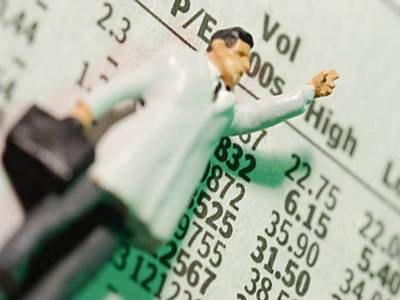Bond Market May Trigger Stock Market Crash
Published / Last Updated on 26/10/2017

Bond Market May Trigger Stock Market Crash.
Many of you may not remember one of the causes of Black Monday, October 19, 1987, where stock markets around the world crashed over a two day period by over 40%.
Many suggestions has been made as to the factors that caused the crash, namely government debt, gearing using financial instruments such as futures and speculators, allegedly the likes of George Soros.
Gearing
For example: with a gearing of X 20 on a ‘future’, if you invest £100 in a stock future you are exposed 20 fold to that stock market i.e. £2,000 exposed to markets. If the market rises by 5% to £2,100. You have made £100 and doubled your money overnight with just a 5% market change. Equally, the market only has to fall by 5% for you to be totally wiped out. The same in the bond market, where you can buy gilt and bond futures and gear up say 10 fold. A bond market correction could also force a bond sell off stampede which then triggers those geared in stock markets to sell shares to cover losses in the bond market and the whole thing crumbles. This is what happened in 1987.
Crash
The crash was caused by speculators betting against markets and forcing others to sell out quickly before they were wiped out forcing even more investors to sell. Indeed, this was also the cause in 1992 of the UK government being forced to withdraw sterling from the European Exchange Rate Mechanism (ERM) after it was unable to keep the pound above its agreed lower exchange rate limit in the ERM. In fact, Chancellor at the time, Norman Lamont at one point increased interest rates to 15% to try and strengthen the pound. Again, allegedly, Mr Soros made $1bn from this alone by ‘betting against’ the pound.
So why are we talking market risks and doom again?
Total UK Government debt, known as Gilts, (as at 26/10/2017) is £1,557.04 billion nominal value (that’s £1.55 trillion) a record. We need to start paying down debt, expect a tight budget next month.
US government gross federal debt, known as bonds, is $20.2 trillion (as at 20/10/2017), of which over $14 trillion is held by investors. Its total stock and shares market is valued at around £18 trillion. In short, the government has more debt than the combined value of every single US company listed on a stock exchange. That’s incredible!
Price earnings ratios (P/E). This is the number of years it will take you in dividend income received from shares held to cover the price you paid for the share. At current levels, the UK P/E is 27.7, US 22.3 and in Italy a whopping 34.4. That’s a whopping 34 years to get back in dividend income what you paid for a share with Italian shares.
Italy, in proportion has even greater government debts than the UK and US. The European Central Bank (ECB) has also this week confirmed it is cutting back its quantitative easing programme (QE) i.e. it will not buy back individual country’s debts as much anymore and Italy has very much relied on this cash flow.
Bond/gilt markets have a much greater influence on markets than we think as bonds technically set the price of money. I.e. if there is no confidence in the UK, it will have to pay higher interest rates on its borrowing to secure that borrowing. Remember Greece? Bond yields or rates of over 17% pa had to be offered for institutions to lend them money. Could Italy fall foul of this? Could the UK? If there is less money in economies and ‘money’ becomes more expensive, stock markets will falter.
Never forget the speculators
They are still out there and if they start betting against the £ (it’s already weak) or Bonds and Gilts, this may spark a bond market correction which may, as in 1987, trigger a stock market crash.
The similarities of today when compared to 1987, 1992 and 2007 (Credit Crunch) are there for all to see and quite frankly, scary. No wonder you keep seeing headlines nearly every day of an impending economic and market crash if government debts are not reduced. We all need to live within our means.